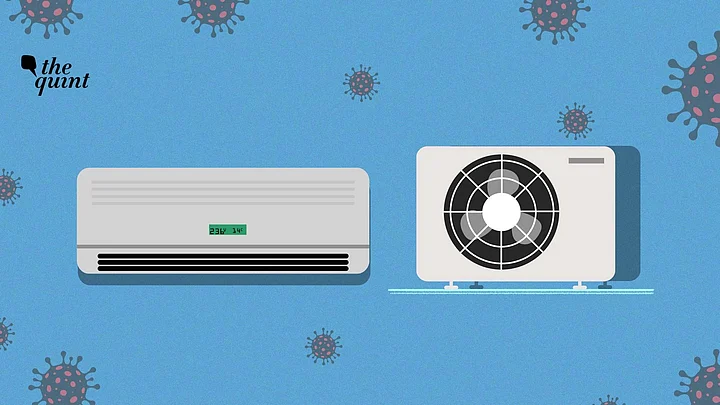The air conditioning machine that gives us peace of mind, can also end up being fatal, if there is a slight mistake.
Something similar happened in Vijayanagara district of Karnataka, where a fire broke out after an air conditioner exploded and four lives were lost due to this fire.
The fire in the AC started due to a short circuit, there was a loud bang with explosion.
The fire quickly engulfed the entire house. Four members of the family who were sleeping in the room where the AC was installed, died.
This is not the first case of loss of life due to AC explosion. Even earlier, people have lost their lives due to such blasts. Due to problems in AC, serious ailments like shortness of breath also start to appear.
After this incident in Vijayanagar, question arises as to what are the main reasons due to which the an AC machine can become an enemy.
High summers are coming and incidents of AC fires would also rise at this time
Dependency on AC increases in the summer, and due to the running of equipments like coolers and inverters, the pressure on the wires also increases.
This can increase the possibility of AC blasts. Here we are going to let you know of all precautions, by which you can prevent an AC from turning into a killer.
Precautions To Take
JE Ravindra Katare of the Indian Air Force is an expert in the working of an AC machine.
When The Quint spoke to him, he said that the reason for the blast in an AC is mainly our carelessness.
He suggests some precautions:
Snapshot
1. People should pay special attention while using window and split AC. Their filters should be cleaned regularly according to expert advice. If the filter is not cleaned, the heat increases and there is a possibility of sparks arising.
2. Both the neutral and phase connections of the AC socket on which you are plugging should be tight. Loosening may cause spark.
3. For a 1.5 ton AC, there should always be 4 mm multiflux wire. If the thickness of the wires that supply power to the AC is less than 4 mm, then there is always a risk of burning of that wire or spark in the switch board.
4. Never run the AC plug through the extension cord or board. AC requires at least 900 to 1200 watts of power, which is not fulfilled by these extension cords that are made according to the power requirement of computers and laptops.
If we run AC with extension cord, then a lot of load comes on it and short circuits take place.
5. Regular servicing of AC is very important in every season. Every three months, it is necessary to check the malfunction of all its systems. If there is any disturbance, then it should be stopped there.
The problem arises when people keep using the AC without servicing it for a long time.
6. The switch fitted with the AC power plug should always be within your reach so that you can turn it off at the time of emergency. Always keep the AC wire away from hot surfaces, as hot surfaces and excessive heat create a risk of fire.
7. Dirt on the AC prevents the AC equipment from working smoothly. Due to this dirt and garbage, there is a danger of explosions in the compressor of the AC.
8. In such a situation, mini circuit breaker must be used. It greatly reduces the risk of explosion.
9. Aluminum wire should not be used at all to power the AC. It is better to use copper wire instead. There should not be any joints in the wire. Where there are joints, there is definitely a spark.
